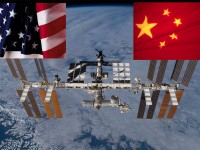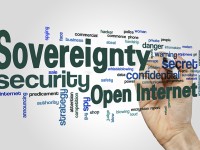
Theresa Hitchens, senior research scholar, University of Maryland
Jun 28, 2016
It is important that the security communities in both the U.S. and China recognize that space is a global commons, and that political entanglement paradoxically benefits both countries. However, the U.S. and China both appear to be ramping up their military responses to each other’s perceived threatening activities. Space cooperation and entanglements will not result in a country fundamentally changing its domestic ideologies or geostrategic goals.
Yu Sui, Professor, China Center for Contemporary World Studies
Jun 24, 2016
The US deployment of anti-missile systems in Eastern Europe could lead to a new arms race. Russia sees the moves as a harbinger of the eastward expansion of NATO and perhaps a springboard for the United States to expand and increase its presence into the Middle East, the Caucasus and Central Asian regions. This will not be constructive to easing tensions and creating stability in Europe.
Wu Sike, Member on Foreign Affairs Committee, CPPCC
Jun 24, 2016
Chinese experts believe that countries can only handle the challenges from terrorism through promoting bilateral and multi-lateral cooperation from the perspective of common security.
Richard Weitz, Senior Fellow, Hudson Institute
Jun 23, 2016
Escalating tensions regarding the Asian-Pacific territorial disputes and other security issues make clear that we need a new approach to dealing with these regional questions. Recent weeks have seen renewed Chinese-U.S. military incidents, stalemated China-U.S. security talks, and a failed China-ASEAN foreign ministers’ meeting.
- How to Win China’s Aid on North Korea: Stop Forcing Beijing to Choose Between the U.S. and the North
Doug Bandow, Senior Fellow, Cato Institute
Jun 23, 2016
By ignoring the Chinese, Kim Jong-un has been gambling with his regime’s future. The PRC appears more ready than ever before to abandon its troublesome friend. However, inertia—and a cold-hearted assessment of interests—is likely to hold Beijing back from cooperating with the U.S. if forced to choose America over Pyongyang.
Wang Hanling, Director of National Center for Ocean Affairs and the Law of the Sea
Jun 22, 2016
The Philippines is being used by the US merely as a pawn to serve the strategic interests of the US. It is precisely because we have seen through this that we choose to resist the South China Sea arbitration -- a political farce under the cloak of law -- and reject any award that comes out of the arbitration.

Mel Gurtov, Professor Emeritus of Political Science, Portland State University
Jun 20, 2016
Both the U.S. and China must bear responsibility for the ratcheting up of tension in the SCS and East China Sea. Washington clings to “freedom of navigation” as its principal reason for challenging Chinese claims even though unencumbered passage has not denied U.S. or any other country’s ships. Beijing should be consistent in recognizing that a legitimate dispute exists, just as it demands that Japan acknowledge a sovereignty dispute over the Diaoyutai/Senkaku islands.
- The Tribunal’s Award in the “South China Sea Arbitration” Initiated by the Philippines Is Null and V
Chinese Society of International Law,
Jun 17, 2016
On 10 June 2016, the Chinese Society of International Law (CSIL) released a paper entitled The Tribunal’s Award in the “South China Sea Arbitration” Initiated by the Philippines Is Null and Void.
- How Convincing is the Decision that the Arbitral Tribunal Has Jurisdiction to Hear the Claims Brough
Chris Whomersley, Former Deputy Legal Adviser,the United Kingdom’s Foreign and Commonwealth Office
Jun 16, 2016
The Philippines has brought arbitration proceedings against China under the United Nations Convention on the Law of the Sea (UNCLOS) relating to the South China Sea, and the Tribunal has recently given its decision on whether it has jurisdiction over the claims made by the Philippines.

Franz-Stefan Gady, Associate Editor, Diplomat
Jun 16, 2016
: Franz-Stefan Gady argues that the end goal of Sino-U.S. deliberations will not be an end to state-sponsored hacking or cyber espionage, but to put a framework in place that will not only help prevent disagreements in cyberspace from spilling over into other parts of the bilateral relationship, but also help both sides to get closer to an understanding of what constitutes strategic stability, i.e., peace, in cyberspace.
Back to Top

- China-US Focus builds trust and understanding between the U.S. and China through open dialogue among thought leaders.
- Our Offerings
- Topics
- Videos
- Podcasts
- Columnists
- Research Reports
- Focus Digest
- Stay Connected
-
Thanks for signing up!
- Get the latest stories from China-US Focus weekly.